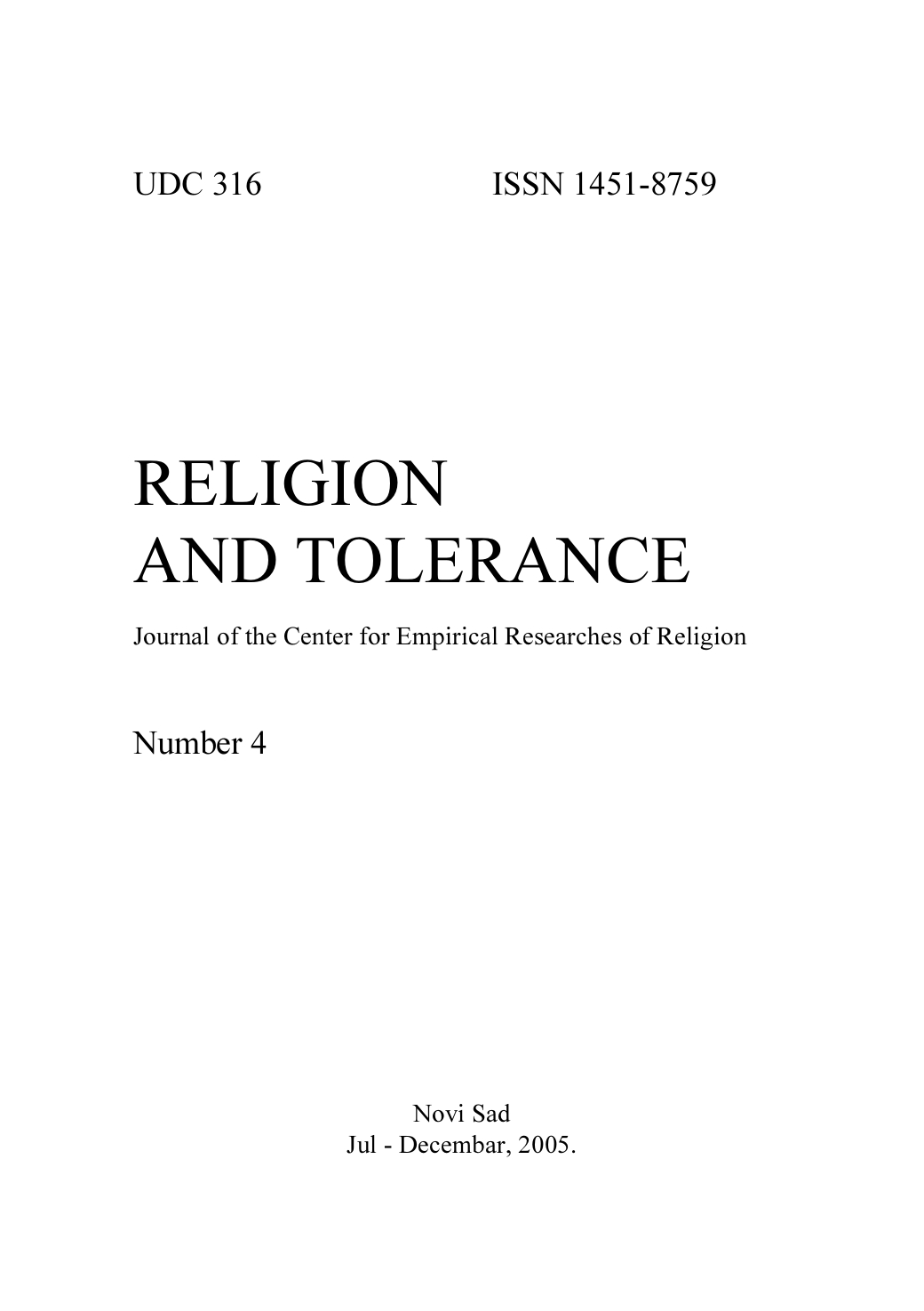PRAVOSLAVLJE I IZAZOVI DEMOKRATIZACIJE, MULTIKULTURALIZMA I TOLERANCIJE
ORTHODOXIZUM (ORTHODOX CHURCH) AND THE CHALLENGES OF DEMOCRATIZATION, MULTICULTURALISM AND TOLERANCE
Author(s): Zlatiborka Popov MomčinovićSubject(s): Christian Theology and Religion, Theology and Religion, Sociology of Religion
Published by: Centar za empirijska istraživanja religije (CEIR)
Keywords: Orthodoxy; Orthodox Church; democratization; multiculturalism; tolerance
Summary/Abstract: In this work, it has been tried to deal with the relationship between the Orthodoxy and modern contemporary processes and challenges, first of all democratization, multiculturalism and tolerance. It was pointed out that the Orthodoxy and Orthodox churches have neither authoritarian structure of their organization nor authoritarian dogma (negative, apophatic approach), for instead of somowhat opsession with hieararchy, sins and justification, present in the Western Christianity, the emphasize is on love and the so called term of deification or divinization- theosis ("God became human that we humans might become god"). However, because of some sort of liturgy isolationism and neglacting of the horizontal dimension, that is to say of rational relations toward world and society, Orthodoxy can easily be submitted to the authoritarian government (the period of cezaropapism in Byzantium, Russia and Serbia of Nemanjići), or to withdraw from the world in its hostile environment (long and difficult periods of foreing and atheistic government), which makes it more aloof from the modern tendences, based on rationality, activism and responsibility. Also, because of some sort of ethnofiletism, that is to say nationalism, which derives from the fact that every orthodox ethnic group has own church authonomy, as well as from the fact that during the foreign goverment, the Orthodoxy and Orthodox Churches has national and state role, there is a danger that the principles of multiculturalism and tolerance, although declarative proclaimed, can be harder practised. Because of these historical and structural circumstances, as well as from the fact that the majority of so called orthodox countries have found themselves in the economical, political and spiritual crises after the fall of communism, the ambivalence between some orthodox messianism and national particularism, on the one side, and calling for love, tolerance, atonement and forgiveness, on the other, is present.
Journal: Religija i tolerancija
- Issue Year: 2005
- Issue No: 4
- Page Range: 95-109
- Page Count: 15
- Language: Serbian

